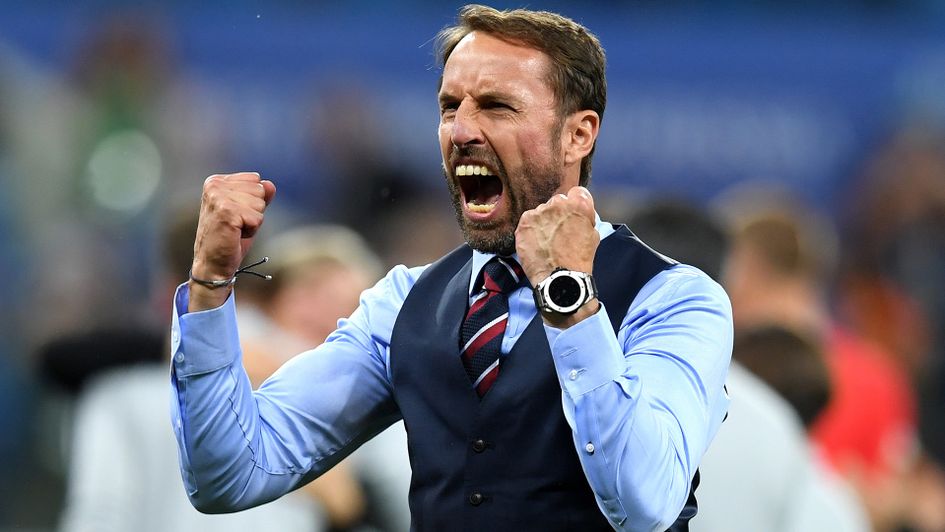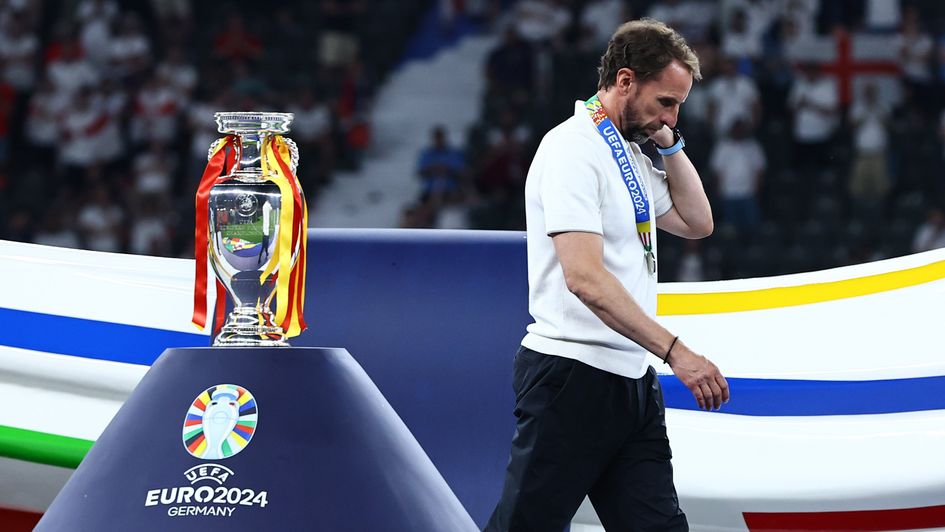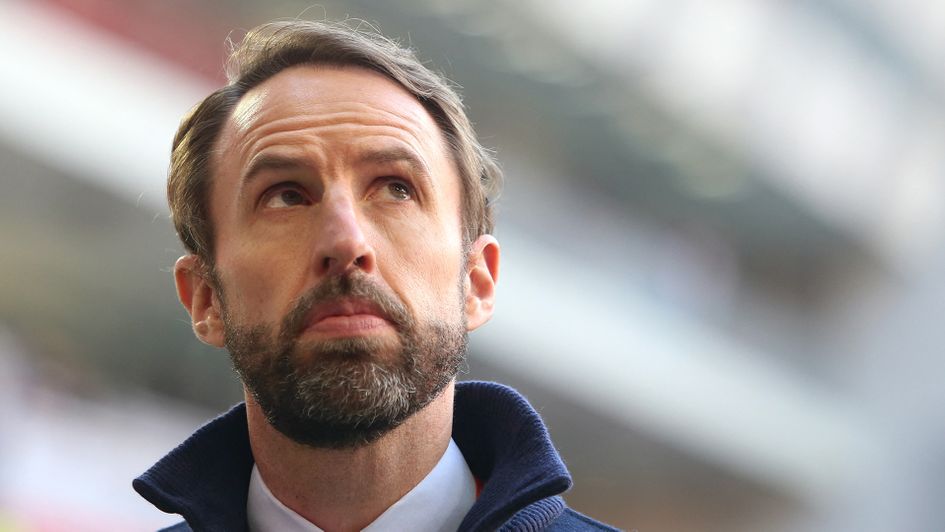Being father to five-year-old twins, not yet old enough to have been infected by footballing tribalism but just beginning to take an interest, I'm already bracing myself for the conversation in the decades to come.
Why despite leading England's men to their first major tournament final on foreign soil, Gareth Southgate had to resign.
Why he was the most successful England manager since Sir Alf Ramsey, but also, cruelly, a failure.
Why you should always be careful what you wish for.
Those conversations may never happen, and not because my kids may not end up liking football, but because for all the rightful praise Southgate's eight-year tenure is receiving, his entire legacy is now hostage to what comes next.
He could be remembered as an under-appreciated overachiever, who delivered a level of consistency never produced by an England team before or since.
Or he could ultimately become a footnote to someone else's story.
The Brendan Rodgers to Jurgen Klopp, Claudio Ranieri to Jose Mourinho, Mark Hughes to Roberto Mancini. Or the countless England cricket captains to Michael Vaughan and Eoin Morgan.
Amazing how quickly those nearly men are forgotten.
Should Southgate's successor deliver what he could not, no credit will be awarded to the groundwork. It will simply act as vindication to those who were so critical, for so long.
So sure that he was never the man for the job.

It wasn't always that way though.
No-one was more popular in 2018, as Southgate was serenaded for overseeing England's unlikely run to the World Cup semi-finals.
While their eventual exit at the hands of Croatia was tainted with an element of disappointment, the overriding feeling was joy, unity and pride.
That 2018 World Cup will forever be his peak.
Sporadic, momentary love-in aside, it has been a slow, conservative, inevitable march towards his departure since then.
Unfortunately, Southgate was never quite able to move beyond the unity phase, perhaps best suited to squeezing what he could from a limited group of players.
By Euro 2020, he may have turned hope into belief, but the result, and nature of the loss, was the same.

Defeat by Italy at Wembley will haunt him forever. His nearly moment. The one that got away. That keeps you up at night.
How wonderful it would have been for Southgate's last act to have seen him deliver the ultimate prize, but in truth his final tournament was his worst.
Only a Jude Bellingham overhead kick from the gods and a hugely fortunate path to the final avoided an ignominious end.
This was a tournament too far, whatever had happened in Berlin.
Objectively, reaching back-to-back European Championship finals, and a World Cup semi and quarter-final is an outstanding record, especially given the context of what Southgate walked into.
In the decade prior to his appointment, England did not win a single knockout match at a major tournament; genuinely 10 years of hurt.
When Steve McClaren arrived, England had been freed from Sven-Goran Eriksson, whose tactical ineptitude saw his team lose every time they met an established opponent in the knockout stage (sound familiar?), and whose insistence on playing unfit captain David Beckham caused widespread fan and media criticism (ahem).
McClaren offered up the Real Madrid star as a sacrificial lamb immediately. He was back in the squad within nine months, and McClaren was out within 15.
Hopefully history doesn't repeat itself.

Gareth Southgate was a great England manager, but he also wasn't good enough. It can be both.
He can be the man who brought us all back together, who made us believe again, but also the man who ultimately held us back.
Whoever comes next will inherit a very different situation to any previous England manager, with the foundations for success firmly in place.
In 2016, Southgate was the man for the rebuild job.
But football is about winning.
And there are only so many goes you get at it.
More from Sporting Life
- Fixtures, results and live scores
- Expert xG analysis and features
- Transfer news and done deals
- Football and other sports tips
- Download our free iOS and Android app
- Podcasts and video content
Safer gambling
We are committed in our support of safer gambling. Recommended bets are advised to over-18s and we strongly encourage readers to wager only what they can afford to lose.
If you are concerned about your gambling, please call the National Gambling Helpline / GamCare on 0808 8020 133.
Further support and information can be found at begambleaware.org and gamblingtherapy.org.






